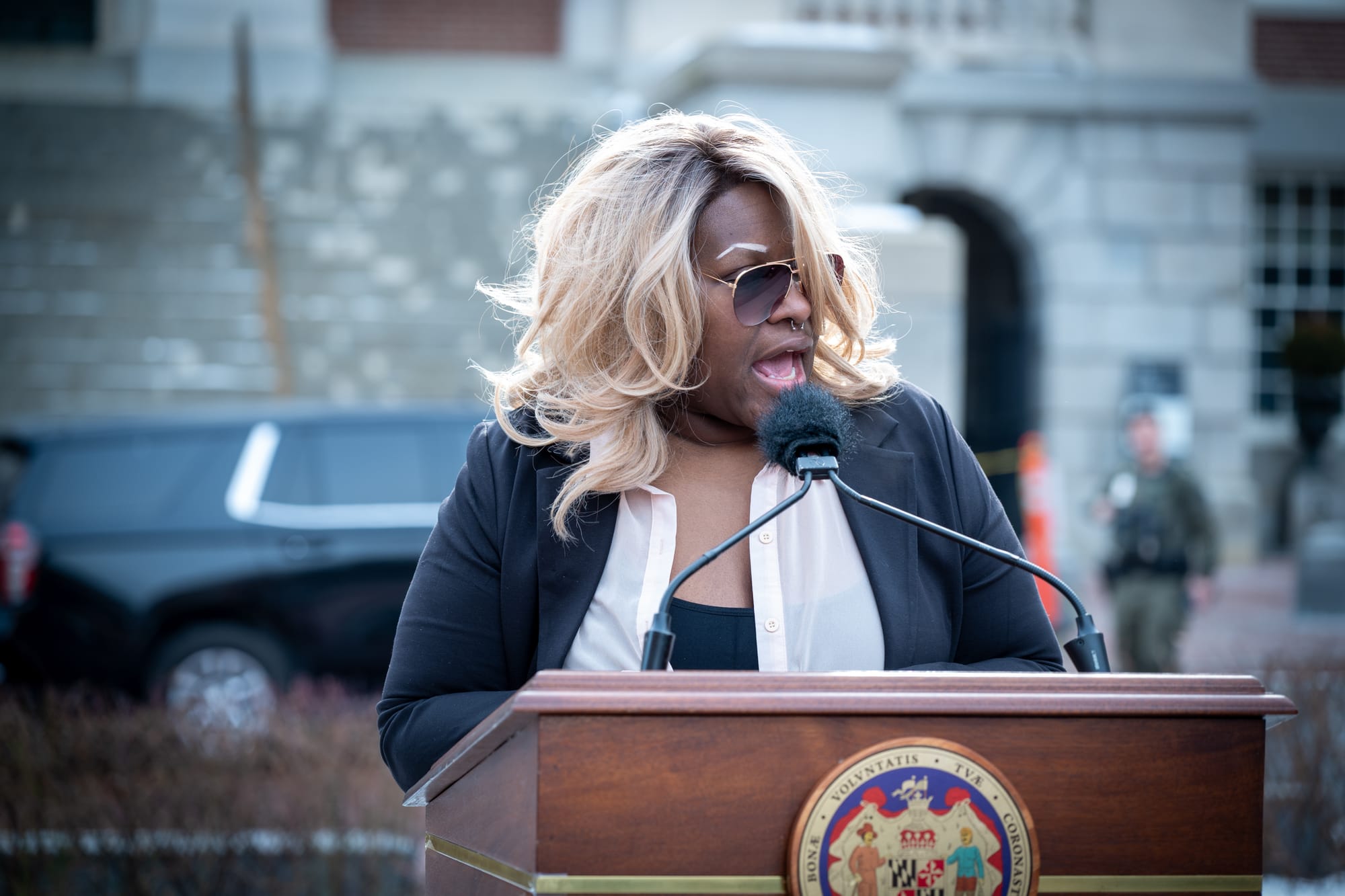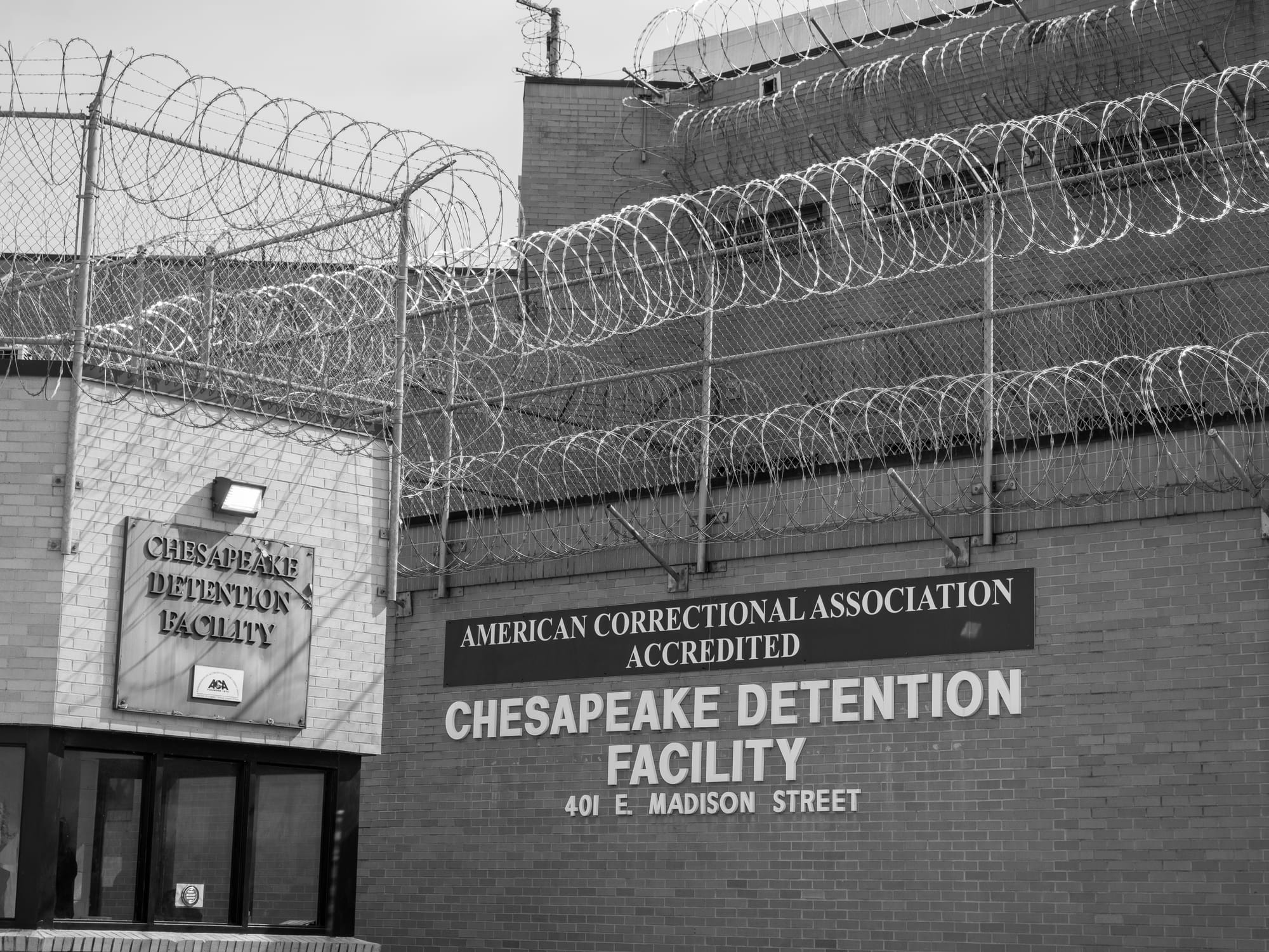
Harm reduction advocates in Maryland have fought for years to get lawmakers to pass legislation to prevent overdose deaths. After a pair of bills missed a key deadline, they face bitter disappointment once again.
March 17 was “Crossover Day” in Maryland—the date by which bills must pass one chamber of the General Assembly in order to be guaranteed a vote in the other by the end of the legislative session in April. As lawmakers rushed to pass numerous bills, those cross-filed in both chambers that would legalize overdose prevention centers (OPC) and decriminalize drug “paraphernalia” languished in committee.
When the deadline passed at midnight, neither had proceeded to a floor vote.
“There doesn’t seem to be the will to pass either of these bills,” Dan Rabbitt, policy director at Behavioral Health System Baltimore, told Filter before the deadline had passed. “It’s unfortunate. Our top priority as a state and city should be preventing overdoses, and both of these measures would help advance efforts to prevent overdoses. We’re disappointed.”
The bills have failed to gain traction in the Democrat-controlled legislature despite ardent support from public health experts and Baltimore Mayor Brandon Scott (D), who declared both proposals “legislative priorities” this session. During hearings, advocates passionately urged lawmakers to help combat an overdose crisis that has devastated Baltimore, in particular.
The OPC legislation would allow six centers to open throughout the state in areas with high rates of overdose deaths. It is sponsored by Senator Shelly Hettleman (D-Baltimore County) in the Senate and Delegate Joseline Peña-Melnyk (D-Anne Arundel County) in the House, who have asserted that myriad evidence shows their efficacy in saving lives.
“I and the many co-sponsors of House Bill 845 will continue to fight for the bill in the event that the bill does not move forward this session,” said Del.Peña-Melnyk, who chairs the Health and Government Operations Committee, in a statement. “Every year since this bill was introduced, countless lives have been lost from drug overdoses. These deaths are preventable.”
Sen. Pamela Beidle (D-Anne Arundel County), chair of the Senate Finance Committee, confirmed to Filter that there was not enough support to justify putting the bill to a vote. Sen. Hettleman noted the OPC issue has been “politicized so much over the years,” adding she will reevaluate before determining whether she’ll push for the bill in future sessions.
Meanwhile, legislation to decriminalize drug “paraphernalia” has had a mixed past in the General Assembly. It cleared both chambers in 2021 before being vetoed by former Governor Larry Hogan (R). This session, it’s sponsored by Sen. Cory McCray (D-Baltimore City) and Del. Karen Simpson, (D-Frederick County). Its key purpose, supporters say, is to allow people to utilize syringe service programs without fear they could be arrested for possessing the supplies they receive there.
“There is no data indicating this decades[-long] ‘war on drugs’ law has ever reduced use or crime,” Simpson said in a statement. “However, this law is an obstacle to the workers and volunteers who are trying to save lives amid our overdose crisis. I will reintroduce [the bill] until this antiquated obstacle to health and safety is repealed.”
Over the years, harm reduction advocates and sponsors have described multiple obstacles preventing the bills from becoming law. This time around, House members indicated to Filter that they believed they had the votes to pass the OPC legislation, but a lack of support in the Senate dissuaded them from pushing it to a floor vote.
This may reflect an ideological gulf between the two chambers. Despite a Democratic trifecta in the state, lawmakers in the upper chamber are seen as having a more conservative bent. For example, sources told Filter that Senate leadership had the votes to override Hogan’s veto of the decriminalization legislation in 2021, but chose not to.
Catherine Tomko, a harm reduction advocate and a social scientist focusing on substance use and mental health at the Johns Hopkins Bloomberg School of Public Health, suggested a troubling factor at play.
“So many of the overdoses and drug harms that are happening [in Maryland] happen in Baltimore City, which is a majority-Black city,” she told Filter. “So I do think that some of it is a racist idea of, ‘Whatever happens to that community happens to that community,’ so there isn't as much of a political will and urgency.”
With the bills now expected to once again die in committee, the spotlight may shift toward Baltimore’s mayor—who leads a city which has had the highest fatal overdose rate in the nation—and the possibility of unilateral implementation at the city level.
Scott’s office has repeatedly dodged questions about OPC, refusing to say whether he would take matters into his own hands, as New York City did in 2021, rather than rely on state-sanctioned sites.
In a statement on March 17, the mayor only said he would “evaluate every option” going forward.
“It is extremely disappointing that these life-saving measures once again face a roadblock due to the General Assembly’s failure to advance them,” Scott said. “We have taken every opportunity to bring attention to how these strategies can save lives as part of a comprehensive approach to tackling overdose and substance use disorder in cities like ours, and we will continue to advocate for them at every turn. As we regroup after this disappointing setback, we will evaluate every option and tool at our disposal to ensure we’re putting forth the most robust overdose response possible.”
In February, Scott appointed Baltimore’s first-ever executive director of overdose response, Sara Whaley, who endorsed OPC and safe supply programs in principle in a recent interview with Filter.
Despite the setbacks, Crossover Day was not a total defeat for harm reduction advocates: It appears that drug-induced homicide legislation will also die in committee. The bill is just one of many iterations of legislation at the state and national level to punish people who supply drugs involved in an overdose death more harshly.
Advocates condemn such legislation as an escalation of the drug war. They point out that many people charged under these laws are friends or family members of the person who died, who had been sharing drugs that both were using.
Maryland’s bill would create a maximum prison sentence of 20 years for people distributing fentanyl that results in death. Paired with legislation passed in 2017 which increased the maximum sentence for selling fentanyl to 30 years, opponents of the bill say it could lead to prison sentences as long as half a century, deterring people from reporting overdoses in which they could be found complicit.
Maryland’s legislative session ends April 7. Barring any last-minute pushes, the bills will all die in committee. But those on the frontlines of the overdose crisis say they’ll fight on.
“With these [OPC and decriminalization] bills, we’ll fundamentally save lives and improve the health of the people of Baltimore,” Rabbitt said. “It’s the right thing to do. The fact there isn’t political support in the legislature or among leadership today doesn’t mean there never will be. The political whims change.”








Comments